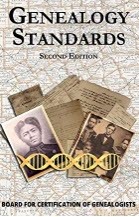Blog


NGS and FGS Announce Merger
There’s big news regarding the two leading national genealogical organizations in the United States. I’ve got the press release from the Federation of Genealogical Societies here, as well as comments from FamilySearch.

NGS and FGS ANNOUNCE INTENT TO MERGE
August 21, 2019 – Washington, D.C.
In a historic move, the boards of the National Genealogical Society (NGS) and the Federation of Genealogical Societies (FGS) announced today their intent to merge.
The two organizations, both non-profit leaders in the dynamic genealogy industry, will form one consolidated group that will continue to operate as the National Genealogical Society. Both boards approved a Memorandum of Understanding (MOU) earlier this week, and jointly announced the news at the Opening Session of the FGS Family History Conference in Washington, D.C. this morning.
Leaders of both organizations believe this merger will serve the genealogy community by improving support of both individual members and societies in the pursuit of genealogical excellence.
The organizational structure of NGS will be modified to increase functions that support genealogical societies and family organizations.
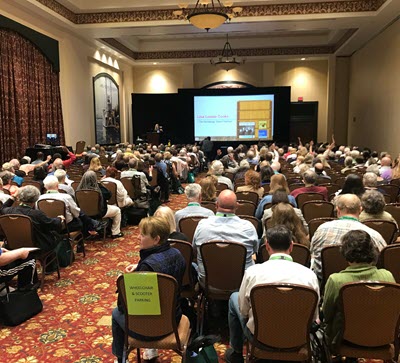
NGS Annual Conference
Digitization projects of genealogical importance such as the War of 1812 pensions will continue.
The two organizations will continue to operate independently while all details of the merger are completed, no later than October 1, 2020.
Faye Stallings, President of FGS, said: “We are excited about this opportunity to combine with a premier organization that has been in operation since 1903. This will allow for improved and expanded services to help support societies.”
Ben Spratling, President of the NGS, commented, “We look forward to continuing the strong legacy of FGS as a ‘gathering point’ for family historians and societies all across the nation.”
According to FamiySearch, “this significant, historical move will consolidate these two great, influential organizations in the genealogy industry, into one with greater capacity to serve the genealogy community. You can read more about it in their press release published in concert with the opening session of the FGS Conference today in Washington, D.C.”
David Rencher, FamilySearch CGO, said “this is a significant move forward for both organizations. FGS has wanted to better serve individuals, and NGS has been seeking ways to better serve societies. Combining their efforts is a win/win for all genealogists at the local, state and international levels. FamilySearch is thrilled with the leadership of both organizations coming together to better serve all genealogists and family historians.”
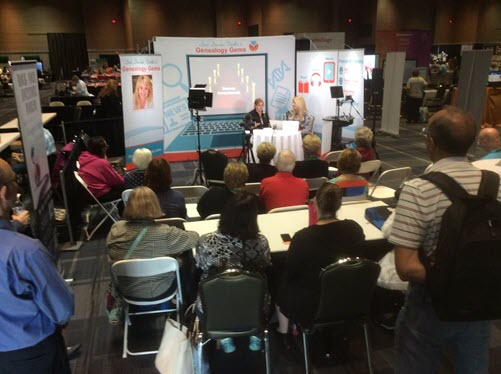
Podcasting at the Genealogy Gems booth at the FGS 2018 conference
About FGS: FGS was founded in 1976 and empowers the genealogical and family history community, especially its societies and organizations, by advocating for the preservation of records and providing resources that enable genealogical organizations to succeed in pursuing their missions.
FGS launched the Preserve the Pensions project in 2010 and raised more than $3 million to digitize and make freely available the pension files from the War of 1812. Fundraising was completed for that project in 2016 and the digitization continues.
FGS was also the driving force behind the Civil War Soldiers and Sailors project alongside the National Parks Service.

The Newest Batch of British & Irish Genealogical Records Now Online
It’s always exciting to see new genealogical records come online because they offer new hope for discoveries and brick wall busting.
Findmypast, a leader in British genealogical records, has recently added thousands of new records to existing and new collections. Among these you’ll find everything from baptism and burial records to British and Irish digitized newspapers.

Huddersfield, England Baptisms
A large market and university town in West Yorkshire, England, Huddersfield is nestled between Leeds and Manchester. It’s the 11th largest town in the United Kingdom, and is known for it’s Victorian architecture. Huddersfield railway station was described by former Poet Laureate of the United Kingdom John Betjeman as “the most splendid station façade in England”, second only to St Pancras, London.
Over 52,000 records covering 14 new parishes have been added to Findmypast’s collection of Huddersfield Baptisms. All new parishes are highlighted in the Huddersfield baptisms parish list.
Each baptismal record includes a transcript of an original parish register entry. This will reveal a combination of your ancestor’s:
- baptism date,
- parent’s names,
- father’s occupation
- and father’s address.
Click here to search the Huddersfield Baptisms
Yorkshire, England Memorial Inscriptions
If you are trying to find out when your ancestor died and was laid to rest in Yorkshire, this growing collection is worth a look. Over 5000 additional records have been added to the Yorkshire Memorial Inscriptions collection.
These newly added records cover 14 Anglican churchyards across the York area (West Riding, North Riding and Ainsty).
The bulk of the records mainly cover the years of the First and Second World Wars.
Search for your ancestors now in the Yorkshire Memorial Inscriptions
Middlesex Baptisms and Monumental Inscriptions
An historic county in southeast England, Middlesex was established in the Anglo-Saxon system from the territory of the Middle Saxons. It existed as an official administrative unit until 1965, and now mostly falls within the ceremonial county of Greater London, with small sections in other neighboring ceremonial counties.
Baptisms
Findmypast has recently added over 64,000 new records to existing parishes within the collection of Middlesex Baptisms. These transcripts of original parish register entries will reveal a combination of your ancestor’s baptism date, parent’s names, father’s occupation and address.
The collection also covers parts of London, Surrey, and Hertfordshire.
Search the Middlesex Baptisms Collection
Monumental Inscriptions
Over 5,000 additional monumental inscription records are now available to search. The new records cover two cemeteries in Teddington as well as the Parish of St Mary’s in Sunbury.
Monumental Inscriptions can reveal the names of others buried in that plot as well as more specific details regarding age, birth and death dates. This can be incredibly helpful as it can provide you with the names and dates of your ancestor’s next of kin, including their relation to one another.
Search the Middlesex Monumental Inscriptions here.
Essex Genealogical Records
Essex is a large county in the south-east of England and forms part of the Metropolitan Green Belt just beyond greater London. The original Kingdom of Essex, founded by Saxon King Aescwine in AD 527, occupied territory to the north of the River Thames and east of the River Lee. In the 1640s, during the English Civil War, notorious witch hunter General Matthew Hopkins lived in the county accused 23 women in Chelmsford in 1645.
You will find five million baptism, banns, marriages, and burial records from Essex on Findmypast. These records were created from the original registers held by the Essex Record Office and other sources.
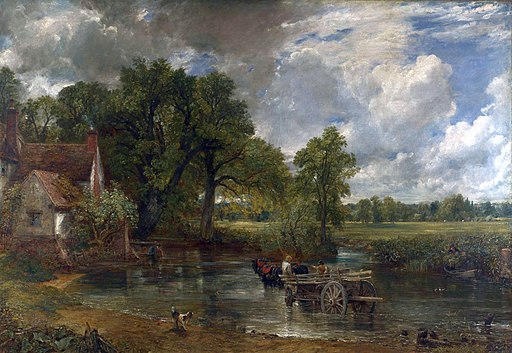
The oil on canvas The Hay Wain by John Constable shows the Essex landscape on the right bank.
Essex Baptisms
This collection covers 532 parishes and reveals:
- birth place,
- birth date,
- birth place,
- denomination,
- residence,
- baptism date,
- baptism place,
- parents’ names,
- and father’s occupation.
Search the Essex Baptism Index 1538-1920 here.
Essex Marriages and Banns
These records cover 553 parishes and provide the following information:
- residence
- occupation
- marital status
- banns year
- marriage date
- location
- spouse’s name
- spouse’s residence
- spouse’s marital status
- father’s name
- spouse’s father’s name
- names of any witnesses
Search the Essex Marriages and Banns 1537-1935
Essex Burials
This collection covers 455 parishes and provide:
- birth year
- age at death
- denomination
- birth year
- burial year
- burials date
- burial place
Search the Essex Burial Index 1530-1994
Derbyshire Genealogical Records
Derbyshire stole my heart this year during a recent trip to England where I spoke at THE Genealogy Show conference. It’s preserved historic beauty can be greatly attributed to the Peak District National Park which mostly falls within this East Midlands area county.
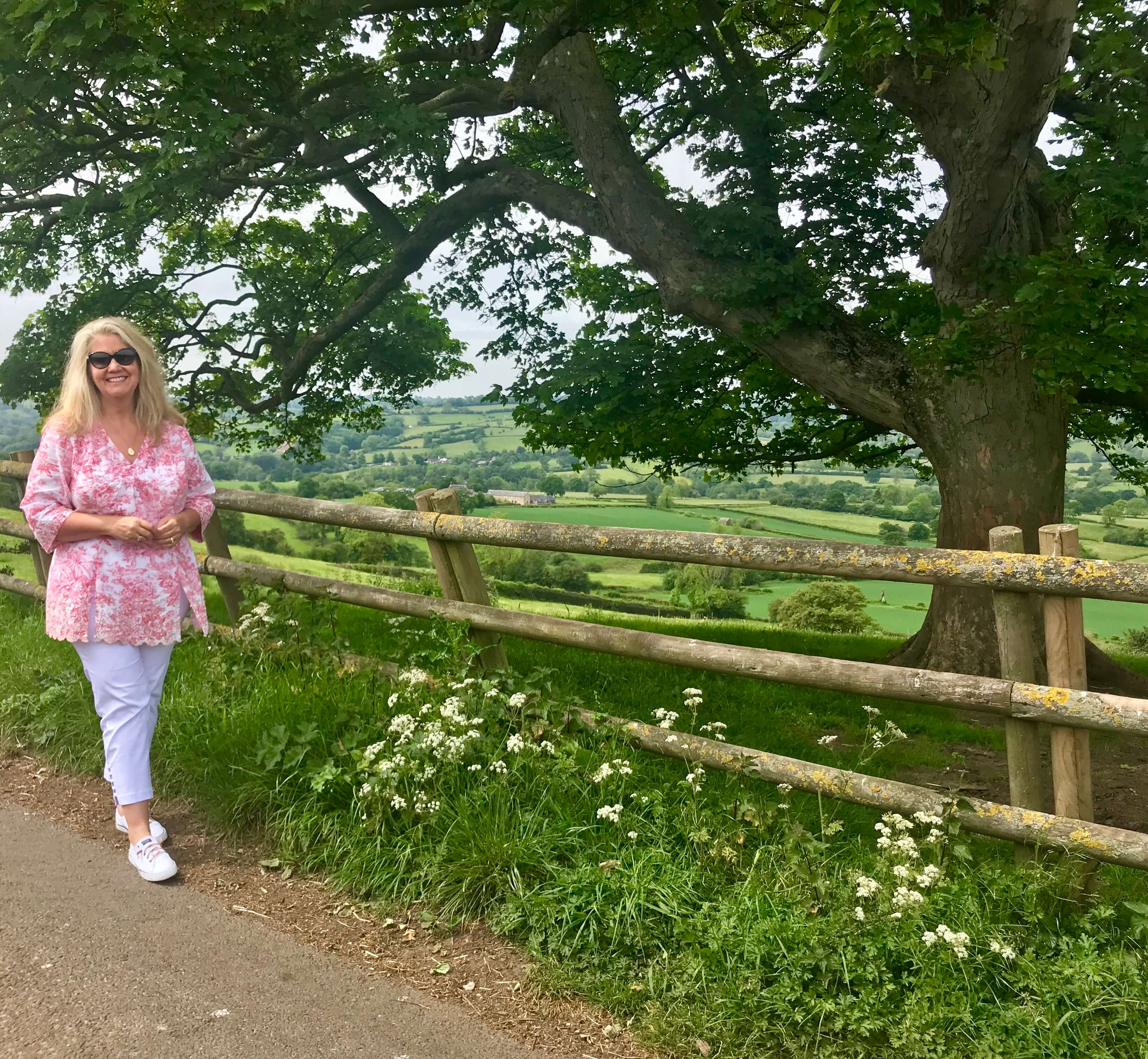
Photo: My recent visit to beautiful Derbyshire, England
Births and Baptisms
Just under a thousand additional records from 15 non-conformist parishes have been added to the Findmypast collection of Derbyshire Births and Baptisms.
Mainly covering Methodists, Baptists, and Presbyterians, the full list of new additions has been highlighted in their Derbyshire parish list.
Search Derbyshire Births and Baptisms here.
Kent Burials
Over 4,500 records of burials that took place at St Martin’s church in Cheriton are now available to search here. These new additions cover two periods, 1843 to 1855 and 1907 to 1958. Search these records to discover where and when your ancestor was buried, as well as the names of their spouse and father.
These burial records constitute a valuable resource for researching ancestry in Kent and have been provided in association with:
- Canterbury Cathedral Archives
- Kent County Council
- the North West Kent Family History Society,
- Folkestone & District Family History Society
- and Val Brown.
Billion Graves Cemetery Indexes at Findmypast
You just might be able to pinpoint your ancestor’s final resting place with the new additions to Findmypast’s Billion Graves Cemetery Indexes. The latest update includes:
- Over 114,000 new additions to the England Billion Graves Cemetery Index
- Over 2,000 new additions to the Ireland Billion Graves Cemetery Index
Cemetery records like these can provide you with information regarding your ancestor’s birth and marriage dates.
According to Alex Cox of Findmypast, “With an abundance of cemeteries, it can be overwhelming trying to pinpoint the precise cemetery in which your ancestor was laid to rest, and visiting each potential location is costly. However, in partnering with BillionGraves, we aim to make available all the cemetery records held on their site for free, saving you time and money as you search for your ancestor. BillionGraves is the largest resource for GPS-tagged headstone and burial records on the web, with over 12 million headstone records.”
British and Irish Newspapers
Additions to Existing Newspaper Collections
Findmpast has added 98,602 brand new pages to eleven of their existing titles. Spanning the years 1865 to 1999, the new additions include extensive updates the Huddersfield Daily Examiner as well as titles covering the south of England (Crawley and London), the Midlands (Coventry), and the North West (Liverpool).
Further updates have also been made to the specialist publication – Field – for which they now have editions up to 1911.
Additional updates have been made to twenty-one existing titles, covering the length and breadth of Scotland, Ireland and England. These include updates to two Cornish titles – the Royal Cornwall Gazette and Lake’s Falmouth Packet and Cornwall Advertiser, as well as updates to seven Scottish titles, including the John o’Groat Journal and the Perthshire Advertiser.
There has been a significant update to the Bristol Times and Mirror, with over 33,000 pages added, covering the years 1897 to 1911.
Also updated are two early Labour publications – Clarion and the Labour Leader – as well as one of our religious titles, Witness (Edinburgh), and the sporting title, the Football Post (Nottingham). As you can see, there is a diverse range of interests represented.
New Newspaper Titles
The Queen, The Ladies’ Newspaper and Court Chronicle, a society magazine by Samuel Beeton established in 1861, and the Women’s Gazette and Weekly News have also been added. Published in Manchester, this was a ‘journal devoted to the social and political position of women.’
More historical newspapers added this summer include:
- Hawick Express covering the years 1892, 1903-1904, 1913-1914, 1919-1940, 1950-1952
- Coatbridge Express covering the years 1885-1951
- Dalkeith Advertiser covering the years 1869-1953
- Barrhead News covering the years 1897-1912
- Banffshire Herald covering the years 1893-1912
- Banffshire Advertiser covering the years 1881-1902, 1905-1912
Check out the latest British & Irish Newspaper Updates here.
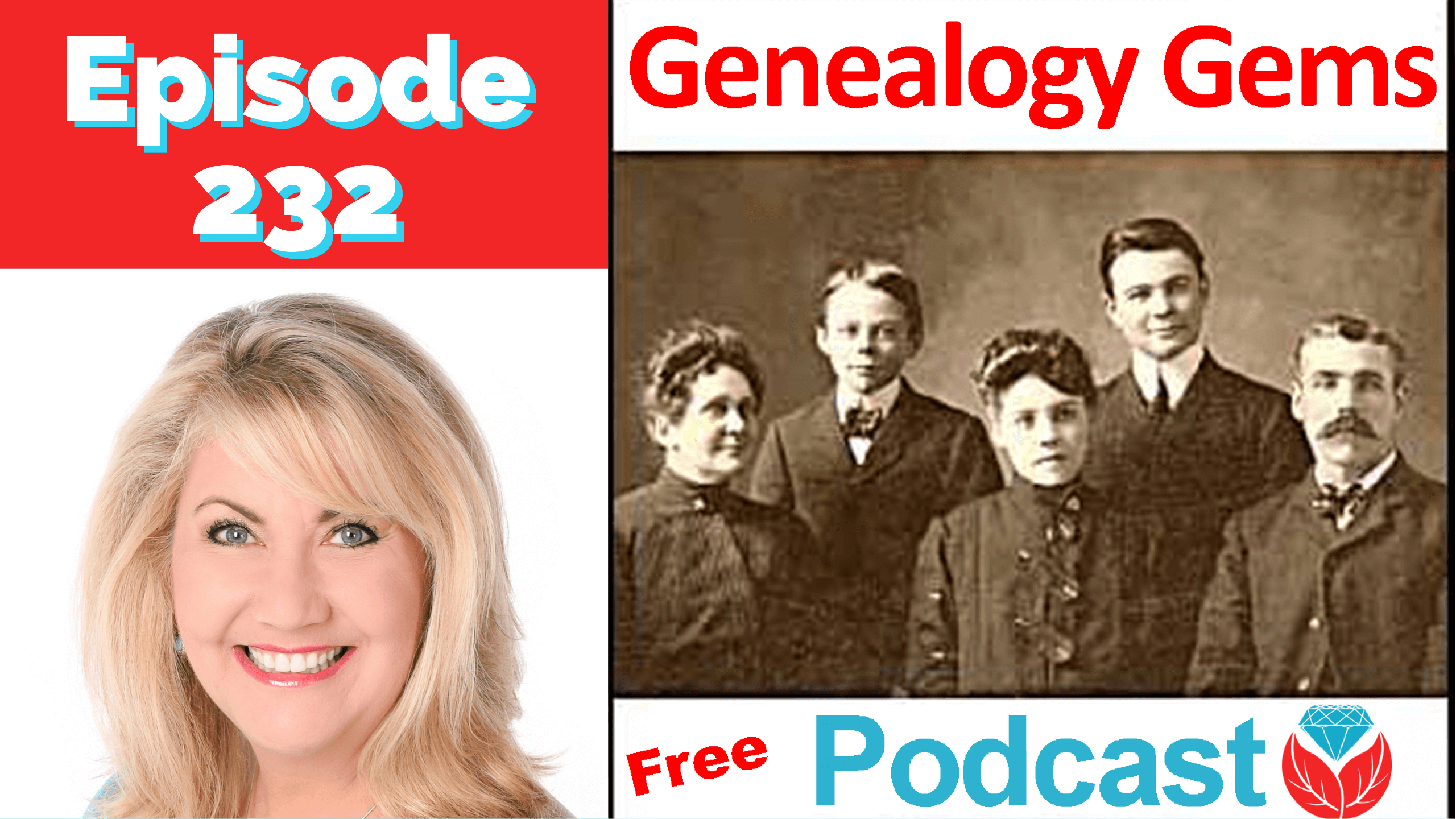
Genealogy Gems Podcast Episode 232
Genealogy Gems Podcast Episode 232
with Lisa Louise Cooke
August 2019
Listen now, click player below:
Please take our quick podcast survey which will take less than 1 minute. Thank you!
In this episode:
- Exploring what you can do to go deeper in your genealogy research for a more accurate family tree with Elissa Scalise Powell
- Irish genealogy podcaster Lorna Moloney, a professional genealogist with Merriman Research, discusses Irish genealogy.
Mailbox
Marcia Finds Treasure on eBay
“I recently remembered your idea of searching for family related things on eBay.
My grandfather and his brother both worked as agents for the Wrought Iron Range Co. of St. Louis. They sold excellent quality wrought iron stoves and my great uncle did very well there as a supervisor.
I did a search for the Wrought Iron Range Co on eBay and immediately pulled up a history of the company, an advertisement for the range and a metal they gave away. I bought them all!
However, the best goodie which I am still bidding on is a “salesman’s sample Wrought Iron Range stove about 12 inches tall and 14 inches long in color and with all working parts.
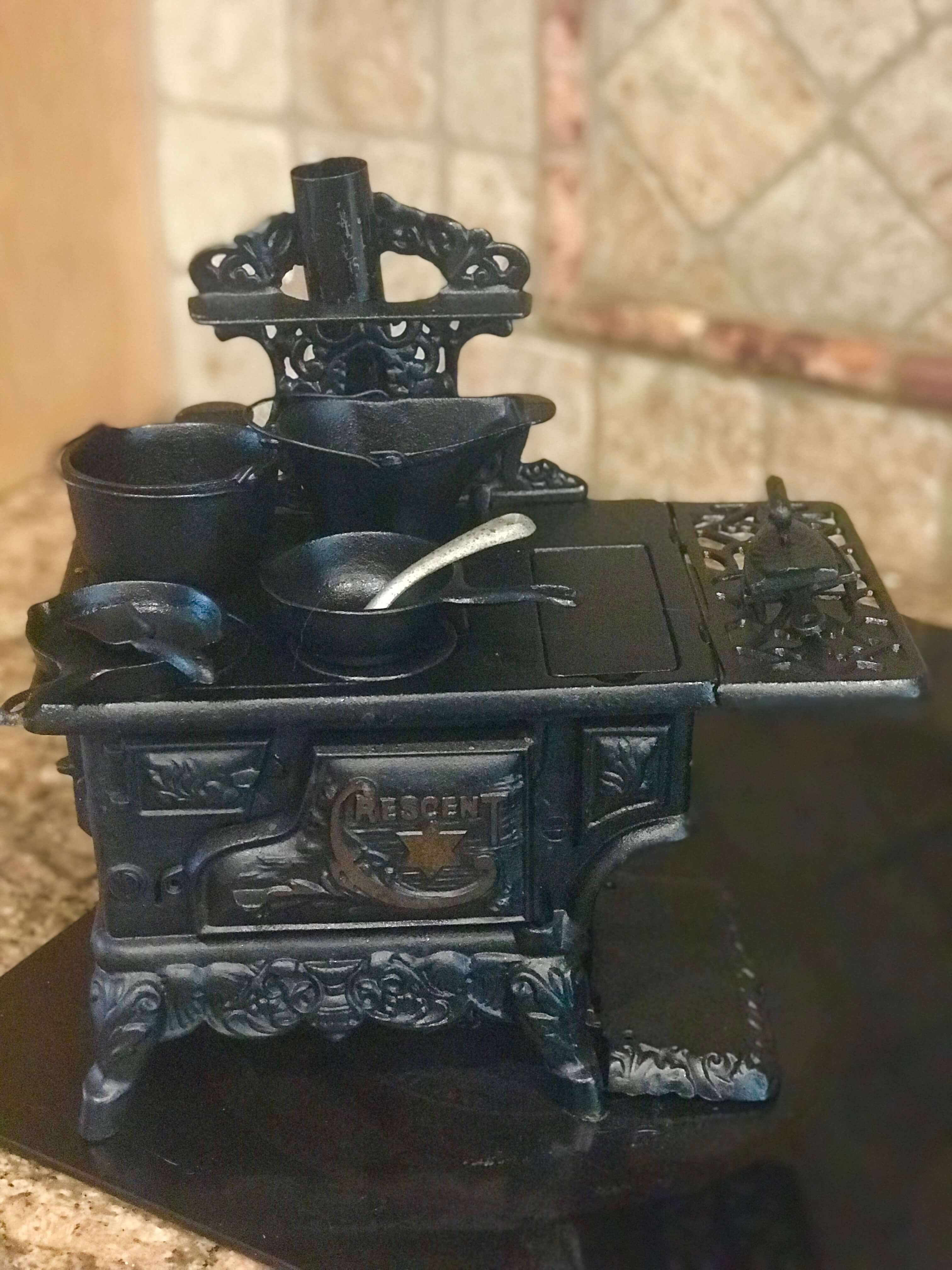 (Photo: The stove Lisa inherited from her grandmother.)
(Photo: The stove Lisa inherited from her grandmother.)
I may not win the bid, but I am thrilled with what I found.
This will bring my grandfather’s occupation to life for my great nephews!!!!”
More eBay Research Strategies on Genealogy Gems:
- Learn more about eBay alerts in Genealogy Gems Podcast Episode 140.
- Genealogy Gems Premium episode 76
- Genealogy Gems Premium episode 16
- Learn more here about Genealogy Gems Premium Membership
Steve Shares a New German Translation Resource
“I came across a new site that you might like to inform your listeners about. It is very new and just getting started, so I know they would appreciate a mention.
The name of this new site is “German Letters in Letters” [germanletters.org]. What they are doing is trying to collect letters written between German immigrants to the US and their relatives back home in Germany.
You can very easily submit scanned copies of any letters you have and the really neat thing is that they will post them at their site. Once they post them, they are asking for translations by any volunteers. So, this is an excellent way to have any letters in your possession to be translated….. for FREE!
I was given about 30 letters written to my GG grandfather, Johann Bernard Husam, who immigrated to Adams Co., Illinois about 1855.
They are from his siblings, nieces, and a nephew back in Germany. They range from 1866 to the early 1900s.
I scanned them and they are now on this site. I was given these letters by great granddaughter-in-law [my aunt] who spoke German as she had grown up in the Sudetenland area of Czechoslovakia. She had escaped Czechoslovakia at the end of WWII before the Russians invaded. She, thankfully, had translated all of the letters.”
Resource:
Learn more about German research from these articles at Genealogy Gems.
What Ann Likes About the Podcast
Hi, Lisa, I’d love to say that your podcast has helped me with a genealogy brick wall but at this point I’m only a “drop-in genealogist,” figuring that I’m the only one in the family interested at this time (working on one grandson though, because I think he’d be a real asset) in finding and preserving family stories.
I do research in fits and starts. But, I do love your podcasts. I’m catching up on back episodes now and recently listened to one that started with you describing a granddaughter’s first Christmas coming up.
It reminded me of one of the best things about your podcasts – it’s like you’re sitting in my living room with me, having a cup of tea, discussing your stories and tips and tricks to help with mine.
Thank you so much for all the information, and for your casual, personal, yet professional style!”
Kristine is No Longer a “Cooke-Cutter” Researcher
“I just retired and guess what is first on my list of things I WANT to do? 🙂 I jumped in with both feet listening to your Premium podcasts and realized a few times that I am the ‘cookie-cutter’ researcher. But, no more. You are the Captain of my ship now. Thank you!
After binging on your podcasts the last two weeks, the first bit of advice I took was changing the way I searched on Newspapers.com. My family’s everyday life’s treasures were buried in the pages of the local news! You made me take a second look after I dismissed the possibility of ever reading about them.
Thank you so much for your dedicated work on behalf of all the genealogists. My Premium subscription will NEVER run out. When a family member says “I don’t know what to get you” I’m prepared to solve that dilemma!
Warm regards,
A listener for life”
Resource:
 Read Lisa’s article called A Shocking Family Secret and 3 Powerful Newspaper Search Tips
Read Lisa’s article called A Shocking Family Secret and 3 Powerful Newspaper Search Tips
This podcast is sponsored by:
GEM: Overcoming Shallow Research with Elissa Scalise Powell
About today’s guest:
Elissa Scalise Powell, CG, CGL, is co-director of the Genealogical Research Institute of Pittsburgh (GRIP); past-president of the Board for Certification of Genealogists, and 2017 She won the Association of Professional Genealogists Professional Achievement Award. She is a Certified Genealogist®, and Certified Genealogical LecturerSM. You can reach Elissa at Elissa@PowellGenealogy.com. (Thank you to Elissa for contributing notes for this episode.)
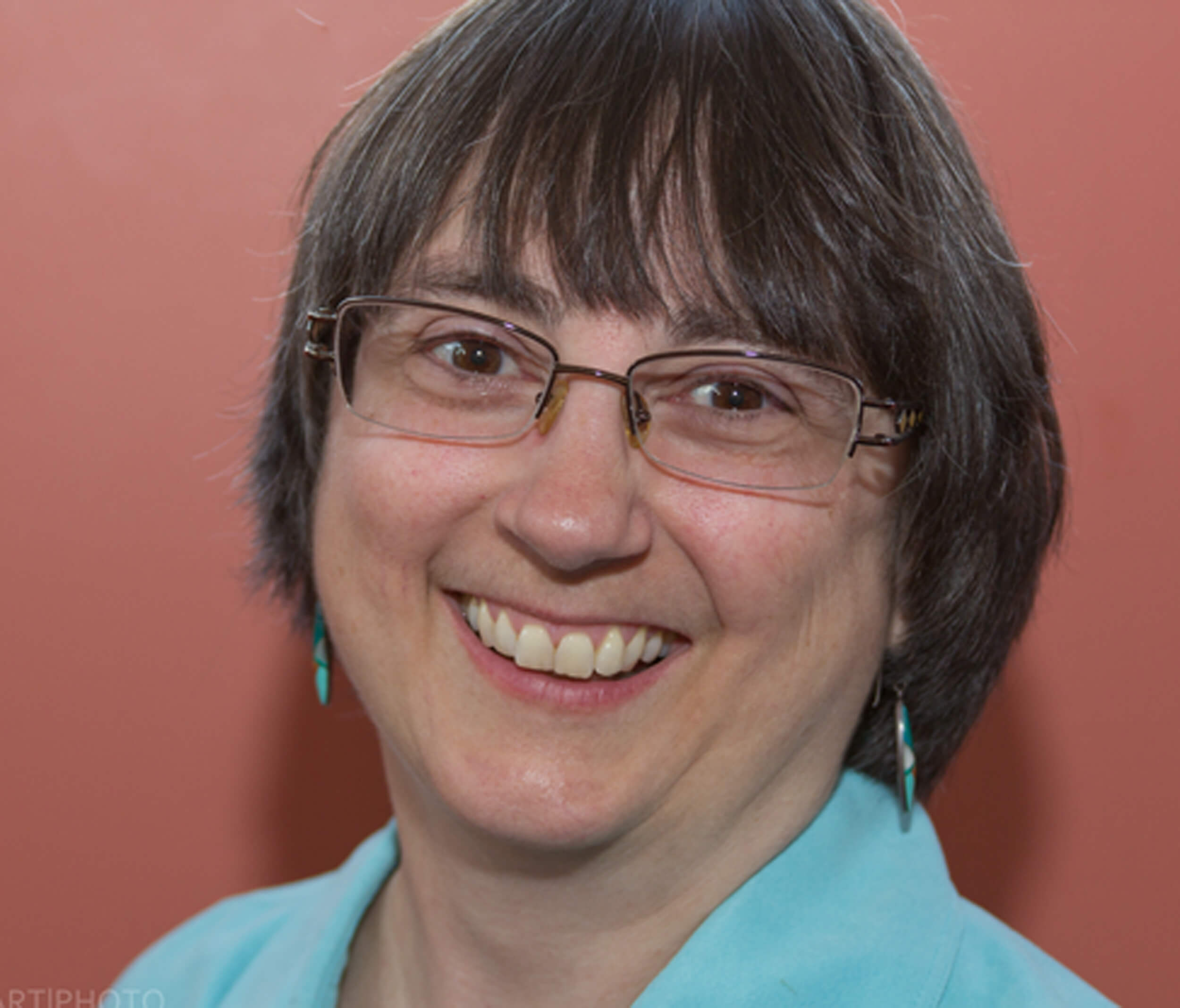
The Genealogical Proof Standard (GPS)
The Genealogical Proof Standard was created to help genealogists gain confidence in their research conclusions by providing criteria that can be followed. A genealogical conclusion is considered proved when it meets all five GPS components.
The 5 Components of the GPS
- Reasonably exhaustive research – This type of research emphasizes original records that provide the information for all evidence that might answer a genealogist’s question about an identity, relationship, event, or situation
- Complete, accurate citations to the source or sources of each information item contributing—directly, indirectly, or negatively—to answers about that identity, relationship, event, or situation
- Tests—through processes of analysis and correlation—of all sources, information items, and evidence contributing to an answer to a genealogical question or problem
- Resolution of conflicts among evidence items pertaining to the proposed answer
- A soundly reasoned, coherently written conclusion based on the strongest available evidence
Resource
The book Genealogy Standards by the Board for Certification of Genealogists provides a standard by which all genealogists can pattern their work.
About Sources
Some sources are considered “Low-hanging fruit.” They can be described as:
- straightforward research
- easily accessible
- record type is easily understood
- document states the fact desired
Many times, genealogists will need to stretch and reach for harder to find sources. These types of sources are:
- not straightforward
- possibly unknown to you at this time
- not easily accessible
- time-consuming to explore
- take study to understand it
- not self-explanatory
Elise’s Examples of the Pitfalls of Shallow Research
- Believing that family stories have been accurately passed down in all details.
- Believing that official documents are always correct.
- Believing that published records, especially transcriptions or abstracts, are faithful representations of the original.
- Premature conclusions can come back to haunt us.
- Disregarding ill-fitting evidence can create brick walls.
- Careless citation practices do not give us the tools we need for analysis.
- Researching and understanding historical context is crucial to solving problems.
- Barriers requiring expertise beyond our own should not hamper the research process.
- Assuming there is only one record and suspending research when the first one is found.
- Assuming that details are unimportant, or not noticing them at all.
Elissa also points out that when we do shallow research, we can actually do more harm than good. Shallow genealogical research:
- Doesn’t allow our ancestors to reveal themselves or their reasons for actions
- Puts them in the wrong time and place
- Can create wrong kinship ties
- Misleads future researchers
- Causes brick walls
- Wastes our time
- Does a disservice to our current family and descendants
GEM: Irish Genealogy with Lorna Moloney of Merriman Research
While speaking at THE Genealogy Show conference in Birmingham England in June of this year I got a chance to sat down for the first time with Lorna Moloney host of The Genealogy Radio show which is produced at Raidio Corcabaiscinn. It airs live on Thursday at 4p.m. and is podcast (click here for episodes). Lorna runs Merriman Research which is dedicated to bringing educational solutions and resources to a wide audience.
Lorna’s website: www.traceyouririshroots.com
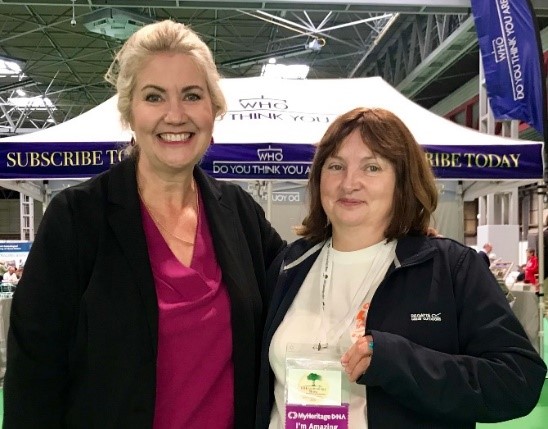
Photo: Lisa and Lorna at THE Genealogy Show in Birmingham, England in 2019.
Join Lisa in Person for 2 Exciting and Innovative Days of Genealogy!
 1 and 2 day passes available. Early-bird special: 2 days for the price of 1 until 9/15/19.
1 and 2 day passes available. Early-bird special: 2 days for the price of 1 until 9/15/19.




